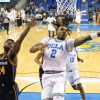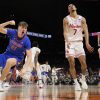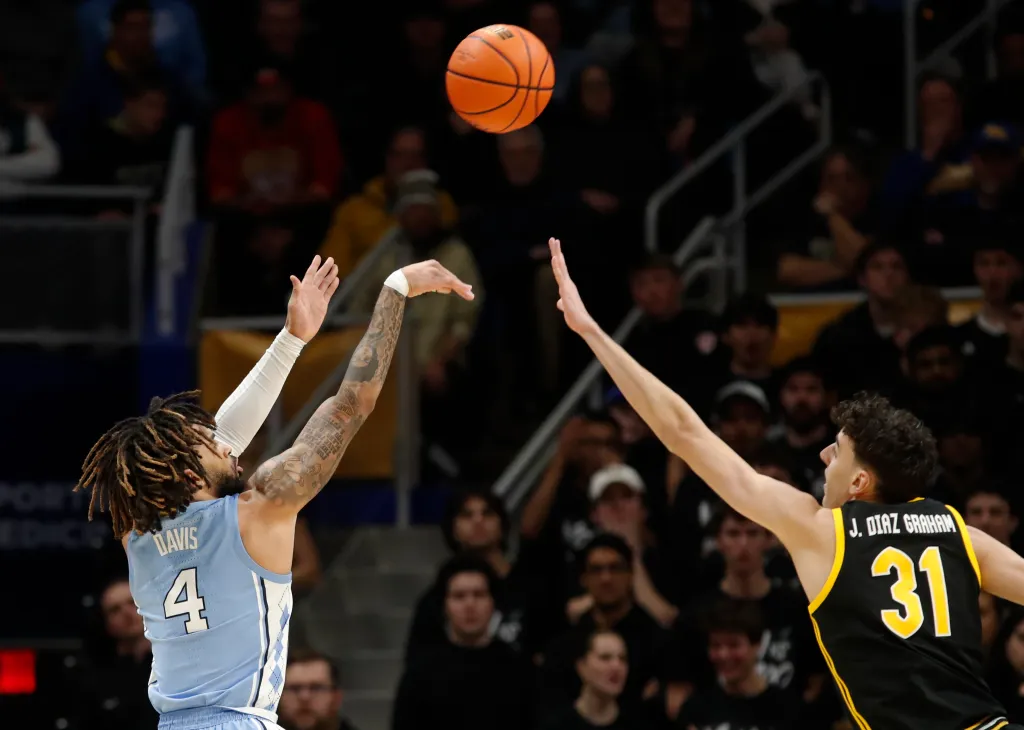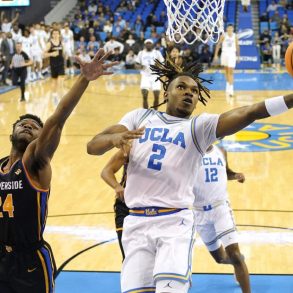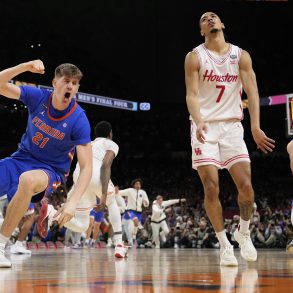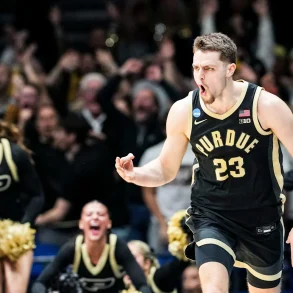North Carolina barely escaped a third straight ACC loss, defeating Boston College in overtime. This win was crucial after recent narrow losses to Stanford and Wake Forest, both by just one point. However, it’s concerning for a program of UNC’s caliber to struggle against teams ranked outside the top-70 in KenPom.
UNC’s offense has been underwhelming this season, struggling both in the paint and on the perimeter. The absence of a true two-way center to replace Armando Bacot has exposed flaws. Jalen Washington and Ven-Allen Lubin, stepping into Bacot’s shoes, lack the same effectiveness, hurting the offensive flow and limiting opportunities for key players like RJ Davis and Elliot Cadeau.
Three-point shooting has been a significant issue for the Tar Heels, with UNC ranking 243rd nationally at just 32.3%. In ACC play, that number has worsened to 31.3%, placing them 14th in the conference. Davis, shooting a career-low 29.5%, and other key players like Cadeau and Seth Trimble have contributed to this disappointing perimeter performance.
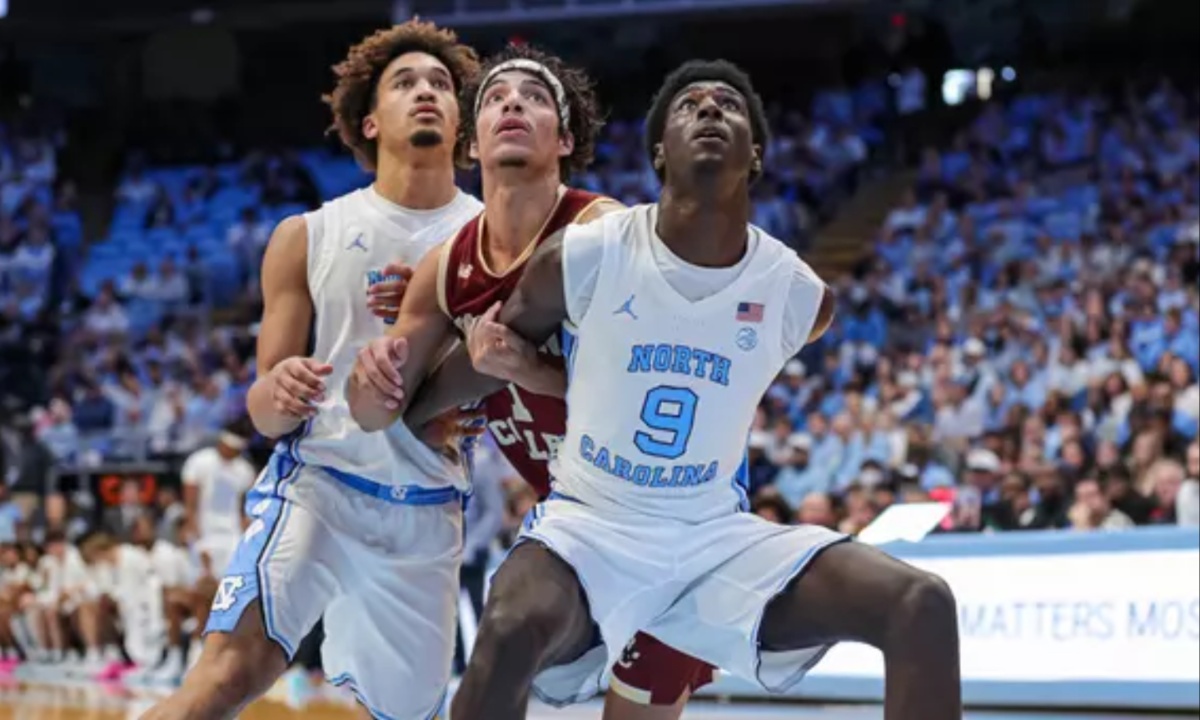
Struggles Inside and Offensive Rebounding Hamper Scoring Opportunities
The lack of a strong inside presence has been detrimental to UNC’s offense. Without Bacot’s rebounding and post-scoring, the team has struggled in the paint. Additionally, UNC ranks 252nd nationally in offensive rebounding rate, failing to generate second-chance opportunities. This has significantly limited their ability to capitalize on missed shots and maintain consistent offensive pressure.
Despite these offensive struggles, there are potential fixes. Ian Jackson has had an impressive season, with a true shooting percentage above 60% and the best three-point shooting on the team. UNC could also benefit from a resurgence in Cade Tyson’s shooting. Although Tyson has struggled this season, his career 43% three-point shooting could be the key to improving the team’s perimeter game.
North Carolina’s defense has also regressed this season. After being ranked in the top-10 for defensive efficiency last year, UNC now sits just inside the top-50. The loss of versatile defenders like Harrison Ingram has weakened the team’s defense. The smaller backcourt, along with a lack of defensive depth in the frontcourt, has contributed to the team’s defensive struggles.
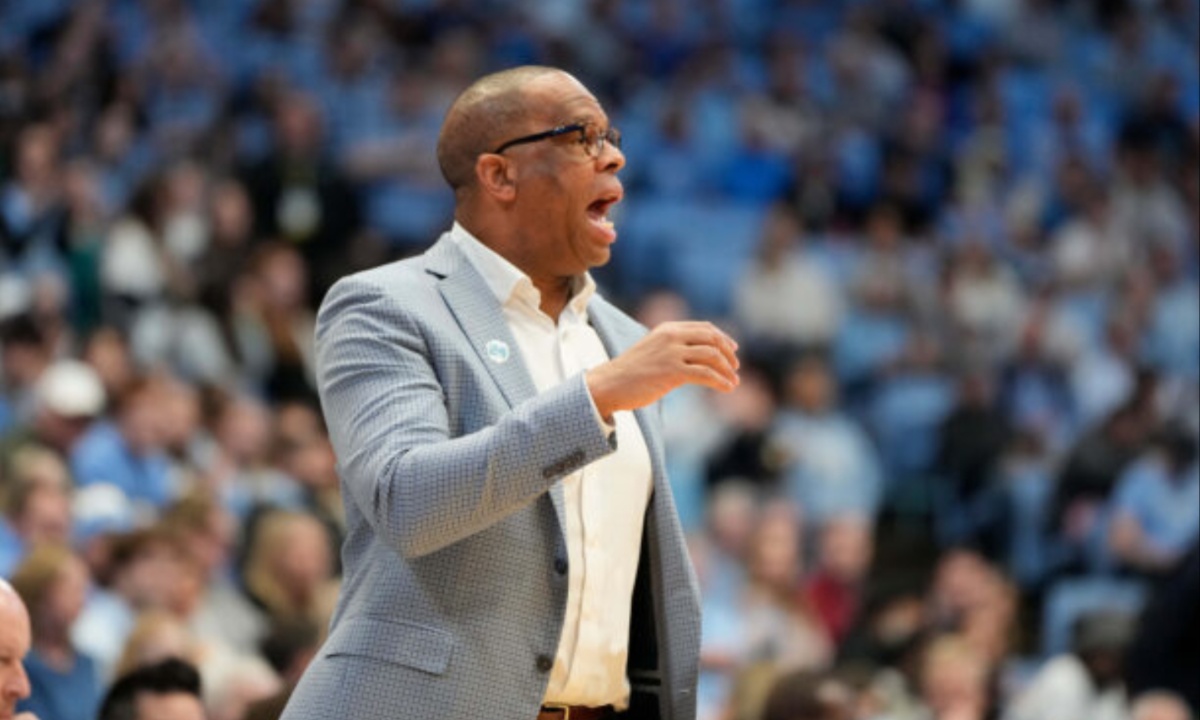
Defensive Glass a Concern as Rebounding Numbers Decline
Rebounding has also been a key area of concern for UNC on the defensive end. Last season, the Tar Heels ranked 10th nationally in defensive rebounding; this year, they’ve dropped to 76th. The team’s inability to secure defensive rebounds has given opponents more opportunities, further hindering their defensive efficiency and overall performance.
Carolina’s small-ball lineups have not provided the necessary defensive stability. With small guards like Davis and Cadeau, the team has struggled against larger opponents. The lack of a defensive-minded power forward to replace Ingram has exacerbated this issue. As a result, UNC’s defensive rating has suffered, leading to more points allowed and less effective defensive schemes.
UNC’s hopes of making the NCAA Tournament are still alive, but their next few games are critical. With two important Quad 1 matchups against Pitt and Duke, the Tar Heels need at least one win to stay in contention for the tournament. Currently sitting at 1-7 in Quad 1 games, they have limited opportunities left to improve their resume.
The next week is crucial for North Carolina’s NCAA Tournament chances. The Tar Heels will face two tough Quad 1 opponents in Pitt and Duke. With just four remaining Quad 1 opportunities, including two games against the Blue Devils, UNC must secure a win to stay in the tournament race and avoid missing the NCAA Tournament for the second time in three years.
